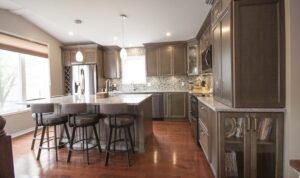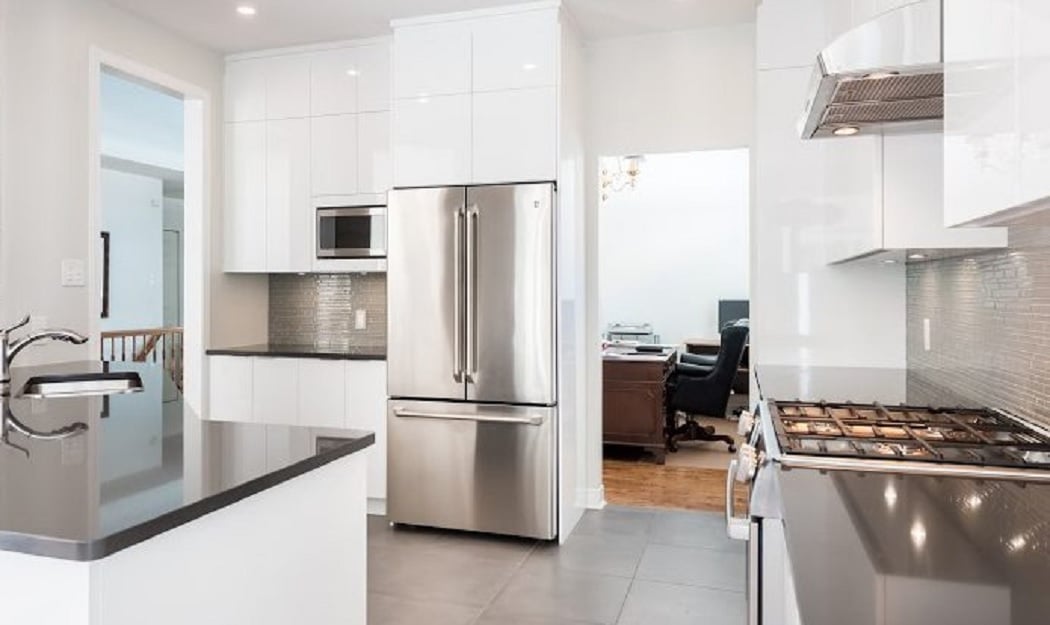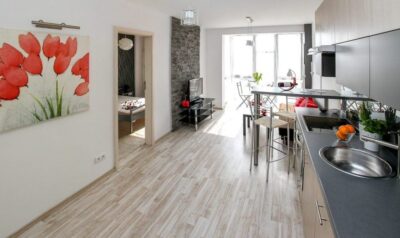Should you renovate or move? It’s a tough question when you love your neighbourhood but your home is well past its best before date. Here are five questions to help with the decision to renovate or move.
Are you overinvesting?

You may be able to afford to renovate, but this may not add an equivalent amount of value to your home.
There are a number of factors that limit the upper selling price of any home. These include the age and condition of other properties in your neighbourhood and demographics. Some experts advocate not spending more than 25% to 30% of the value of your house on renovations.
Many banks will compare the price per square foot of recent, comparable properties sold in your area. If you are planning a $90,000 addition with 500 square feet, the renovation cost is $180 per square foot. How does that compare with what properties are selling for in your neighbourhood?
Consider the highest cost per square foot and spend up to the limit to avoid an “over-improved” home.
Can you handle the disruption?

Sure, the renovation will be fantastic when it’s done. But don’t forget, any size of renovation is also going to be a disruption.
The bigger the renovation, the longer it will take and the more disruptive it will be on your daily routine.
You could experience a significant disruption that lasts weeks, if not months, depending on the size of your renovation.
It will be messy, noisy, and chaotic.
You may also be without power and water at some point in the renovation process, making cooking and showering more difficult during those periods.
For many, those disruptions can be very stressful.
How long do you plan to live in the house?

The longer you decide to live in your newly renovated home the easier it is to justify the cost and disruption of a renovation.
A three- or four-month renovation is a drop in the bucket if you are planning on staying in your home for another 10 years or more. But if you’re thinking of moving within the next three years, it may not be worth going through all the planning and expense for such a relatively short period of enjoyment.
Are you paying for the renovation from savings or from a loan?

If you’re taking out a loan, don’t forget to factor in the cost of borrowing when calculating the total cost of your renovation.
While interest costs are still at near-record-low levels, small amounts add up. A $50,000 renovation that is financed at 2.7% over five years results in a monthly payment of $892.
A good investment should add the same amount or more to the value of your home. Smart renovations add immediate value and can justify the total cost even if you are financing the renovation. For example, kitchens and bathrooms continue to be considered good investments with the promise of recouping 80% to 90% of your investment, often more.
An excellent source of information is the Appraisal Institute of Canada, which publishes annual stats on what percentage of a renovation cost homeowners can expect to recover on a resale.
For example, according to the institute, kitchen renovations are usually at the top of the list and recover 75% to 100% of their cost. So a professionally done renovation will be an investment.
For many common improvements, such as a basement renovation, rec room addition, flooring upgrade and window replacement, homeowners can expect a return of 50% to 75%.
However, some exterior work, such as landscaping, fencing and paving, provide a lower return in the range of 25% to 50%.
You can download a copy of the institute’s How to Value Your Renovations brochure here.
How much will it cost to move versus renovate?
The total cost of a move is substantial at the best of times.
In addition to the purchase price of your new home; you have to consider the cost of selling your existing home and completing the purchase agreement. This includes real estate and lawyer fees. And you have the cost of the move itself.
When buying a new home in Ontario, on closing you can expect to pay legal fees and disbursements, land transfer tax (in Ontario), processing fees, a land survey, closing adjustments, HST, property transfer tax, property inspection, appraisal fee, property tax, and service and hook-up fees (telephone, cable, water, gas and electricity, etc.).
Whether you are moving into a brand new home or a recently renovated older home, you can expect decorating costs — if not immediate renovation costs for a home that is not finished to your taste or style.
New appliances round out the total investment of uprooting and moving to a new property.
When you add up the total out-of-pocket cost to sell and move, staying put and renovating may seem like a better investment.
In the end, the biggest single factor to consider in any decision is the personal enjoyment you will get from renovating versus moving. While that is a qualitative consideration, it ultimately trumps everything.
Originally published Aug. 3, 2019










